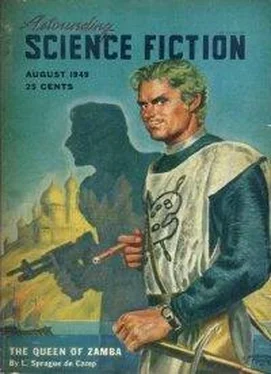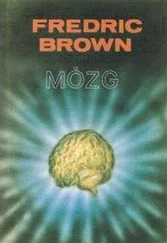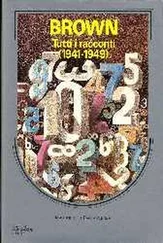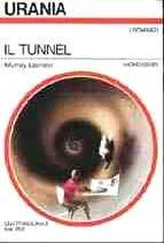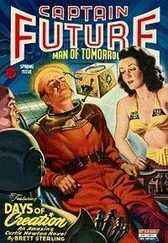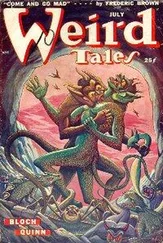Fredric Brown - Letter to a Phoenix
Здесь есть возможность читать онлайн «Fredric Brown - Letter to a Phoenix» весь текст электронной книги совершенно бесплатно (целиком полную версию без сокращений). В некоторых случаях можно слушать аудио, скачать через торрент в формате fb2 и присутствует краткое содержание. Год выпуска: 1949, Издательство: Street & Smith Publications, Inc., Жанр: Юмористическая фантастика, на английском языке. Описание произведения, (предисловие) а так же отзывы посетителей доступны на портале библиотеки ЛибКат.
- Название:Letter to a Phoenix
- Автор:
- Издательство:Street & Smith Publications, Inc.
- Жанр:
- Год:1949
- ISBN:нет данных
- Рейтинг книги:5 / 5. Голосов: 1
-
Избранное:Добавить в избранное
- Отзывы:
-
Ваша оценка:
- 100
- 1
- 2
- 3
- 4
- 5
Letter to a Phoenix: краткое содержание, описание и аннотация
Предлагаем к чтению аннотацию, описание, краткое содержание или предисловие (зависит от того, что написал сам автор книги «Letter to a Phoenix»). Если вы не нашли необходимую информацию о книге — напишите в комментариях, мы постараемся отыскать её.
Letter to a Phoenix — читать онлайн бесплатно полную книгу (весь текст) целиком
Ниже представлен текст книги, разбитый по страницам. Система сохранения места последней прочитанной страницы, позволяет с удобством читать онлайн бесплатно книгу «Letter to a Phoenix», без необходимости каждый раз заново искать на чём Вы остановились. Поставьте закладку, и сможете в любой момент перейти на страницу, на которой закончили чтение.
Интервал:
Закладка:
No, my chances for survival between my periods of waking life are much better than my chances of survival during my conscious, active periods. It is perhaps a miracle that I have survived so many of those, despite the techniques of survival that I have developed.
And those techniques are good. I’ve lived through seven major atomic—and super-atomic—wars that have reduced the population of Earth to a few savages around a few campfires in a few still habitable areas. And at other times, in other eras, I’ve been in five galaxies besides our own.
I’ve had several thousand wives, but always one at a time, for I was born in a monogamous era and the habit has persisted. And I have raised several thousand children. Of course, I have never been able to remain with one wife longer than thirty years before I must disappear, but thirty years is long enough for both of us—especially when she ages at a normal rate and I age imperceptibly. Oh, it leads to problems, of course, but I’ve been able to handle them. I always marry, when I do marry, a girl as much younger than myself as possible, so the disparity will not become too great. Say I am thirty; I marry a girl of sixteen. Then when it is time that I must leave her, she is forty-six and I am still thirty. And it is best for both of us, for everyone, that when I awaken I do not again go back to that place. If she still lives, she will be past sixty and it would not be well, even for her, to have a husband come back from the dead—still young. And I have left her well provided, a wealthy widow—wealthy in money or in whatever may have constituted wealth in that particular era. Sometimes it has been beads and arrowheads, sometimes wheat in a granary and once—there have been peculiar civilizations—it was fish scales. I never had the slightest difficulty in acquiring my share, or more, of money or its equivalent. A few thousand years’ practice and the difficulty becomes the other way—knowing when to stop in order not to become unduly wealthy and so attract attention.
For obvious reasons, I’ve always managed to do that. For reasons that you will see, I’ve never wanted power, nor have I ever—after the first few hundred years—let people suspect that I was different from them. I even spend a few hours each night lying thinking, pretending to sleep.
But none of that is important, any more than I am important. I tell it to you only so you will understand how I know the thing that I am about to tell you.
And when I tell you, it is not because I’m trying to sell you anything. It’s something you can’t change if you want to, and—when you understand it—you won’t want to.
I’m not trying to influence you or to lead you. In four thousand lifetimes I’ve been almost everything—except a leader. I’ve avoided that. Oh, often enough I have been a god among savages, but that was because I had to be one in order to survive. I used the powers they thought were magic only to keep a degree of order, never to lead them, never to hold them back. If I taught them to use the bow and arrow, it was because game was scarce and we were starving and my survival depended upon theirs. Seeing that the pattern was necessary, I have never disturbed it.
What. I tell you now will not disturb the pattern.
It is this: The human race is the only immortal organism in the universe.
There have been other races, and there are other races throughout the universe, but they have died away or they will die. We charted them once, a hundred thousand years ago, with an instrument that detected the presence of thought, the presence of intelligence, however alien and at whatever distance—and gave us a measure of that mind and its qualities. And fifty thousand years later that instrument was rediscovered. There were about as many races as before but only eight of them were ones that had been there fifty thousand years ago and each of those eight was dying, senescent. They had passed the peak of their powers and they were dying.
They had reached the limit of their capabilities—and there is always a limit—and they had no choice but to die. Life is dynamic; it can never be static—at however high or low a level—and survive.
That is what I am trying to tell you, so that you will never again be afraid. Only a race that destroys itself and its progress periodically, that goes back to its beginning, can survive more than, say, sixty thousand years of intelligent life.
In all the universe only the human race has ever reached a high level of intelligence without reaching a high level of sanity. We are unique. We are already at least five times as old as any other race has ever been and it is because we are not sane. And man has, at times, had glimmerings of the fact that insanity is divine. But only at high levels of culture does he realize that he is collectively insane, that fight against it as he will he will always destroy himself—and rise anew out of the ashes.
The phoenix, the bird that periodically immolates itself upon a flaming pyre to rise newborn and live again for another millennium, and again and forever, is only metaphorically a myth. It exists and there is only one of it.
You are the phoenix.
Nothing will ever destroy you, now that—during many high civilizations—your seed has been scattered on the planets of a thousand suns, in a hundred galaxies, there ever to repeat the pattern. The pattern that started a hundred and eighty thousand years ago—I think.
I cannot be sure of that, for I have seen that the twenty to thirty thousand years that elapse between the fall of one civilization and the rise of the next destroy all traces. In twenty to thirty thousand years memories become legends and legends become superstitions and even the superstitions become lost. Metals rust and corrode back into earth while the wind, the rain, and the jungle erode and cover stone. The contours of the very continents change—and glaciers come and go, and a city of twenty thousand years before is under miles of earth or miles of water.
So I cannot be sure. Perhaps the first blow-up that I knew was not the first; civilizations may have risen and fallen before my time. If so, it merely strengthens the case I put before you to say that mankind may have survived more than the hundred and eighty thousand years I know of, may have lived through more than the six blow-ups that have happened since what I think to have been the first discovery of the phoenix’s pyre.
But—except that we scattered our seed to the stars so well that even the dying of the sun or its becoming a nova would not destroy us—the past does not matter. Lur, Candra, Thragan, Kah, Mu, Atlantis—those are the six I have known, and they are gone as thoroughly as this one will be twenty thousand years or so hence, but the human race, here or in other galaxies, will survive and will live forever.
It will help your peace of mind, here in this year of your current era, to blow that—for your minds are disturbed. Perhaps, I do know, it will help your thoughts to know that the coming atomic war, the one that will probably happen in your generation, will not be a blow-up war; it will come too soon for that, before you have developed the really destructive weapons man has had so often before. It will set you back, yes. There will be darkish ages for a century or a few centuries. Then, with the memory of what you will call World War III as a warning, man will think—as he has always thought after a mild atomic war—that he has conquered his own insanity.
For a while—if the pattern holds—he will hold it in check. He will reach the stars again, to find himself already there. Why, you’ll be back on Mars within five hundred years, and I’ll go there too, to see again the canals I once helped to dig. I’ve not been there for eighty thousand years and I’d like to see what time has done to it and to those of us who were cut off there the last time mankind lost the space drive. Of course they’ve followed the pattern too, but the rate is not necessarily constant. We may find them at any stage in the cycle except the top. If they were at the top of the cycle, we wouldn’t have to go to them—they’d come to us. Thinking, of course, as they think by now, that they are Martians.
Читать дальшеИнтервал:
Закладка:
Похожие книги на «Letter to a Phoenix»
Представляем Вашему вниманию похожие книги на «Letter to a Phoenix» списком для выбора. Мы отобрали схожую по названию и смыслу литературу в надежде предоставить читателям больше вариантов отыскать новые, интересные, ещё непрочитанные произведения.
Обсуждение, отзывы о книге «Letter to a Phoenix» и просто собственные мнения читателей. Оставьте ваши комментарии, напишите, что Вы думаете о произведении, его смысле или главных героях. Укажите что конкретно понравилось, а что нет, и почему Вы так считаете.
